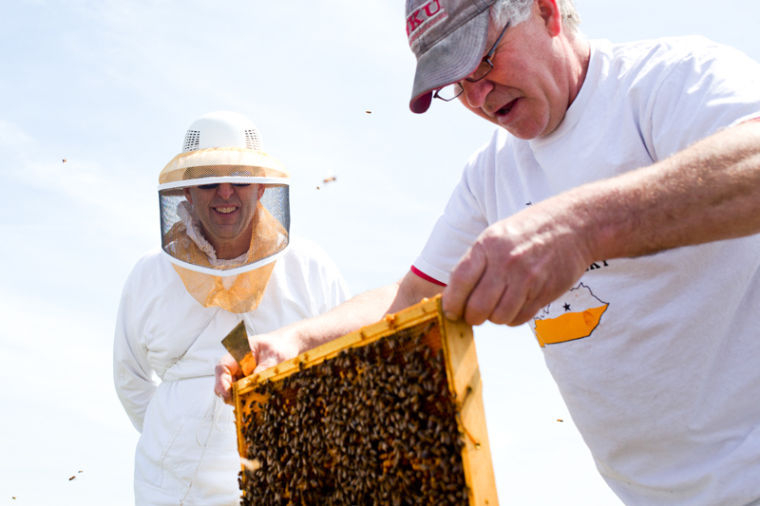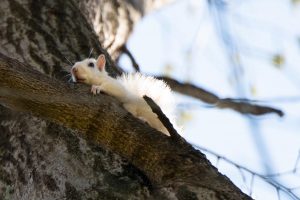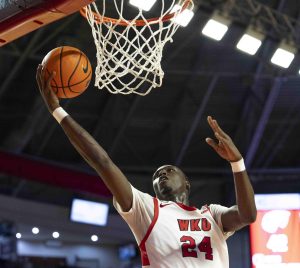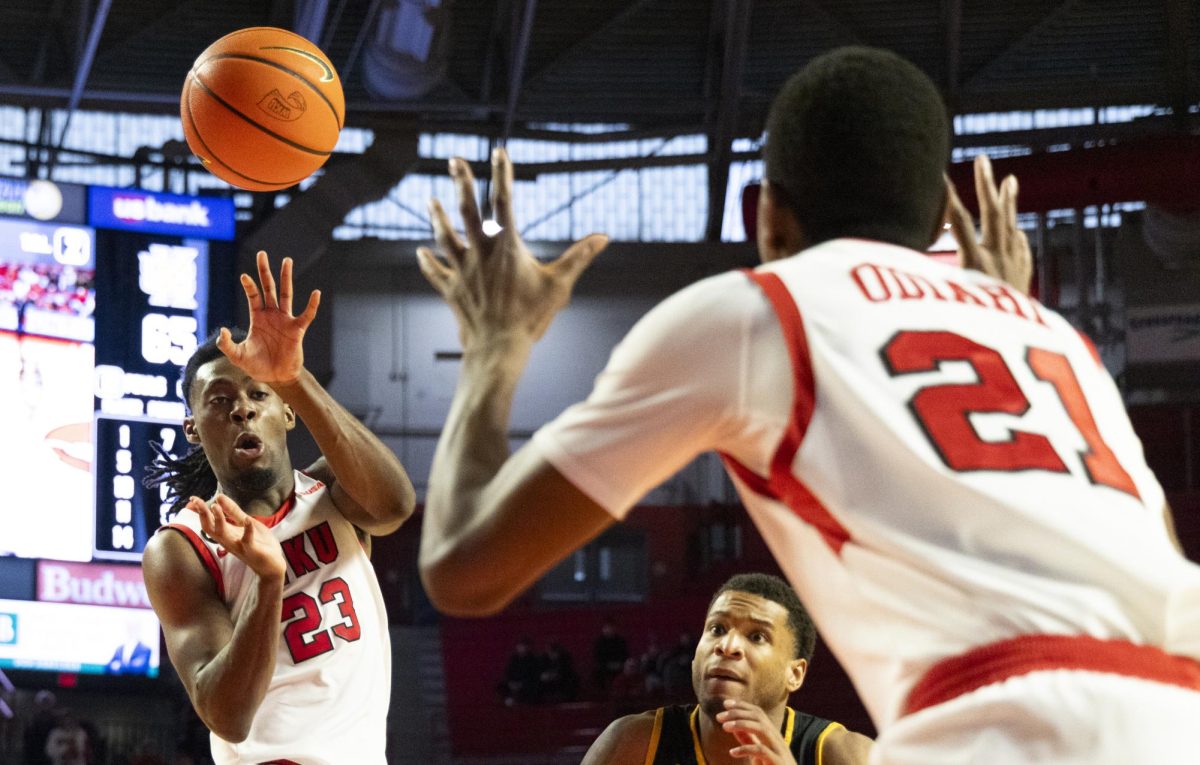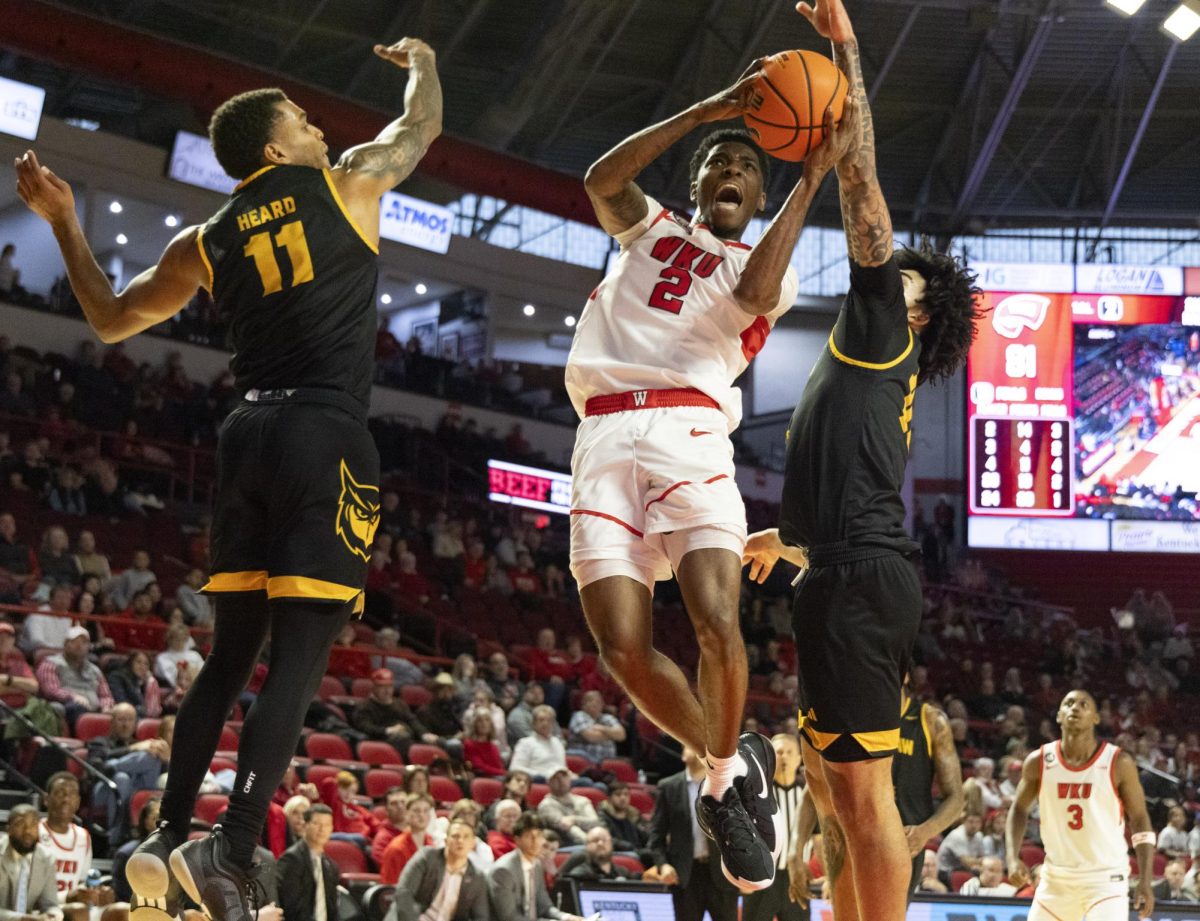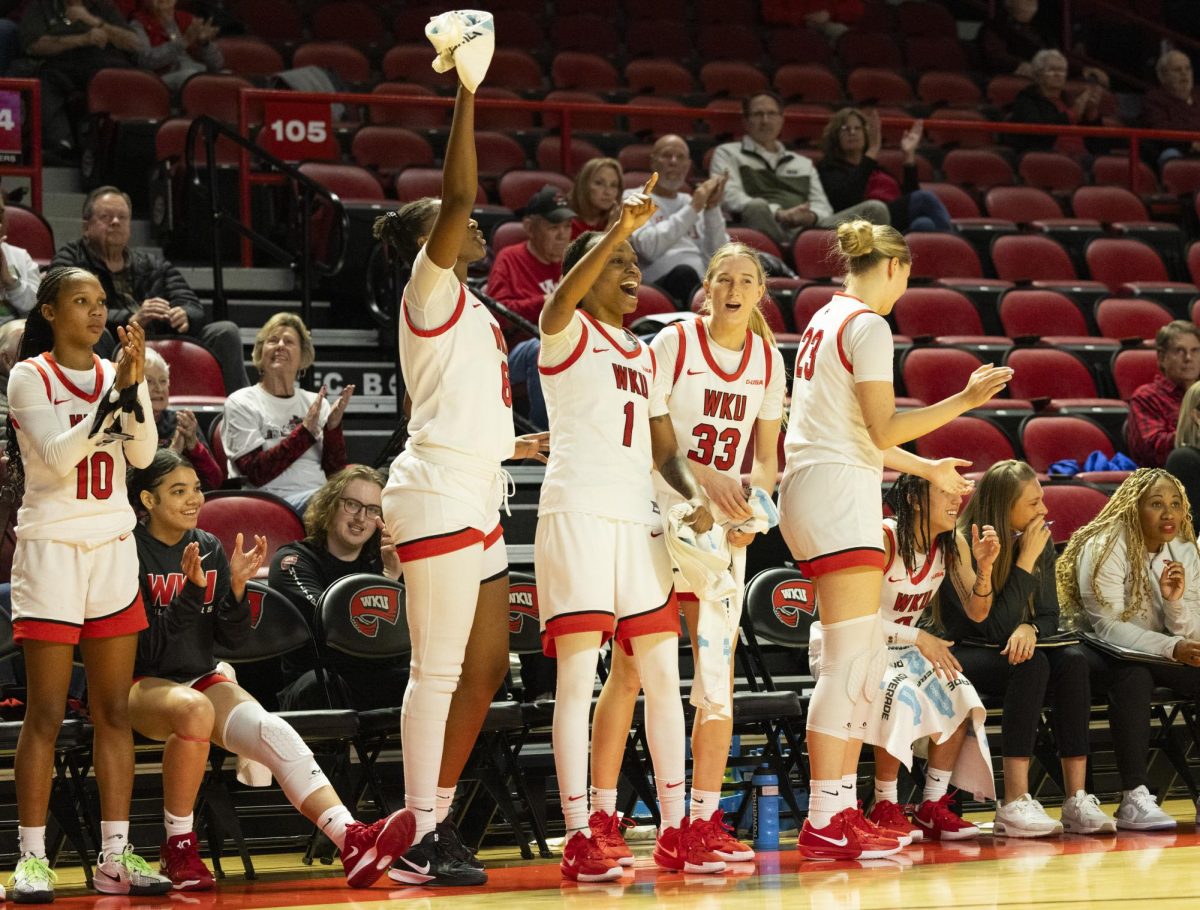WKU club members learn the benefits of beekeeping
April 12, 2013
As life in the spring begins to buzz, so do the hundreds of thousands of bees at WKU’s Agriculture Farm as Big Red Beekeepers begins its first spring season.
WKU’s first beekeeping club, which officially formed in Fall 2012 and boasts eight to 12 members, started as a project of faculty member John Pace. Pace was a graduate student in the agriculture department last year and took on the project as a part of his degree program for two years. Pace applied for a grant which supplied money for the project to become a sponsored club.
Jacob Osborne, an Owensboro agriculture senior at WKU and president of the club, said that he talked to Pace multiple times about starting the club, and thought it was a good idea. Osborne, 23, has been keeping bees since he was eight years old, and wanted to share the importance of beekeeping.
“Our objective is to teach students the importance of honeybees,” he said. “One-third of (the nation’s) food is pollinated by the honeybee.”
Helping to promote the education about bees is the club’s initial sponsor, Walker T. Kelley Company. The company donated the hive boxes, veils, gloves and smokers (the devices used to calm the bees when handling the active hives). The club also purchases its bees from Walker T. Kelley, and recently set up 10 new hives with thousands of bees.
Big Red Beekeepers’ vice president, WKU senior Holly Young, has also kept bees for most of her life, and worked to expand the club’s membership from within the agriculture major to every major and age. Young, 27 of Scottsville, tells potential members that bees create more than just honey, which can be marketable from people with allergies to people obsessed with cosmetics.
They provide honey, wax, propolis, which is used in cosmetics like lip balm, and pollen which (when consumed) can build antibodies to offset allergies. As a pollinator, the honeybee is a valuable asset economically, Osborne said.
Young and Osborne that the average age of beekeepers in the nation is 51-75 years old. By sharing the uses and value of the bees, the club hopes to make the average age younger.
“We see a younger population of beekeepers encouraging older beekeepers to use technology,” she said. “(It’s) making it cooler to the younger group.”
Reducing allergies was a main reason that WKU graduate student Aldious Waite joined the club. Waite, a native of Negril, Jamaica, said that spring in Kentucky sets off allergies. He said “the solution is eating honey.” As far as his prescription, Waite said “so far, so good.”
Although there are health benefits to consuming what the bees create in the club, Waite likes more than just alleviating his sniffles.
“I’m glad that it’s not in a classroom that we meet,” he said.
Most of the club’s meetings are informal gatherings to check on the bees at the farm to make sure that the hives are healthy.
A sense of community is strong among beekeepers, and is true for the club as well. Sharing a passion for bees and what they provide unites veil-wearing, honey lovers everywhere.
“We’re like a family now,” said Pace.
For more information about Big Red Beekeepers, visit their Facebook page: “Big Red Beekeepers,” or email [email protected].

